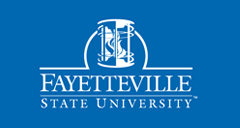Abstract
Prior research has noted differences in motivational, academic, and well-being factors between first-generation and continuing-education students. However, past investigations have primarily overlooked the interactive influence of protective and risk factors when comparing the characteristics of first-generation and continuing-education students. Thus, the current study adopted a multivariate approach to gain a more nuanced understanding of the influence of generational status on students' self-regulated learning capabilities, academic anxiety, sense of belonging, academic barriers, mental health concerns, and satisfaction with life. University students (N = 432, 67.46% Caucasian, 87.55% female, Age = 28.10 ± 9.46) completed the Cognitive Test Anxiety Scale-2nd Edition, Satisfaction with Life Scale, Sense of Belonging items, the learning strategies section of the Motivated Strategies for Learning Questionnaire, DASS-21, and BARRIERS Scale. Using Multivariate Analysis of Variance, we determined that first and continuing-generation students differed in satisfaction with life, cognitive test anxiety, psychological distress, use of elaborative rehearsal, critical thinking capabilities, efforts to manage time and study environment, and maintaining attention when working on academic tasks. Our discussion focuses on practical methods that can be used to help first-generation students navigate barriers to academic success.
Recommended Citation
Thomas, Christopher L. and Zolkoski, Staci
(2023)
"A Multivariate Investigation of the Motivational, Academic, and Well-Being Characteristics of First-Generation and Continuing-Generation College Students,"
Journal of Research Initiatives: Vol. 7:
Iss.
3, Article 10.
Available at:
https://digitalcommons.uncfsu.edu/jri/vol7/iss3/10
Included in
Educational Psychology Commons, Higher Education Commons, Multivariate Analysis Commons, Other Statistics and Probability Commons, Statistical Methodology Commons
